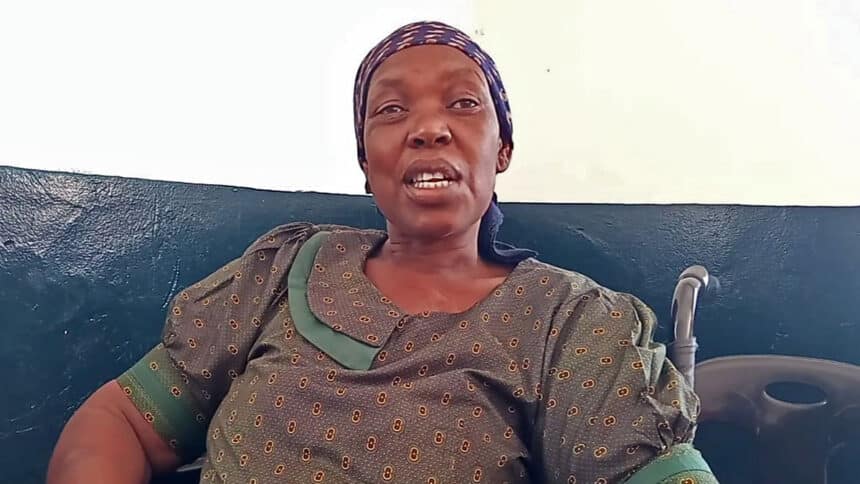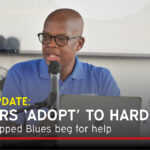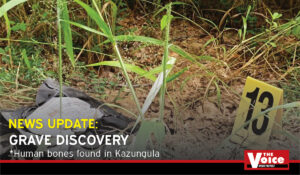Tales of struggle and survival in Maun
For the last 29 years, Tlamelo Makgetho has been confined to a wheelchair.
The Maun woman’s life was turned upside down in 1994, when she lost her legs, forced to amputate both limbs due to a devastating skin disorder that caused her cells to die.
For a woman who thrived on hustle-and-bustle, it was an especially distressing body-blow.
“Before I became ill, I was working hard to ensure my children were taken good care of. But then an ailment struck, my legs started changing colour, becoming dark. They were literally dying while I was still alive. I could not walk. My toes started falling off, one at a time. By the time I agreed to the operation, most of the toes had fallen off!” recalls the 54-year-old.
Makgetho was taken to Thuso Rehabilitation Centre in 1996, but found it difficult to accept the reality of her new life.
“My children were young then and I was afraid of what the future held for them. How I was going to support and raise them in my condition?” continues the Moeti ward resident, the old memory still fresh.
Finding resolve from within, at Thuso she learnt dressmaking and was given an electronic sewing machine to use.
Meant to provide a lifeline, it nearly led to her death.
“The machine brought along life-threatening side-effects. My whole body started developing dark blisters, my face would sometime become very dark. This went on until one doctor discovered that it was side-effects of electronics, in particular the sewing machine,” Makgetho tells The Voice.
Having mastered the needle and threat, she reverted to using a manual machine instead.
However, selling her products proved a challenge.
“At some point I found a spot in town to sell my products. But with mentally-challenged people roaming around, some would come and urinate on skirts I was hanging on the fence for sale. I gave up on that business to look for something else that could generate an income for me.”
She is yet to find that ‘something else’.
Once again at a crossroads in her life, the fiercely dependent Makgetho admits she hates being reliant on anyone.
She has little choice though.
“I am a hard worker, I built a house with stone but at the moment I just need that boost, even if it is a tuck-shop so I can continue to be self-reliant,” concludes the aging Makgetho, slumping back in her wheelchair in desperation.
Stuck in a similarly tough situation due to his failing health, Gedion Moronga, 39, issues lie with his eyes.

Completely blind for 13 years now, the Shashe ward native’s problems with his vision date back to 1997, when he was in Standard One.
Although the doctors told him Glaucoma claimed his sight, Moronga is adamant it was the work of witchcraft.
“Honestly, it was witchcraft because this started whenever I tried looking into books. Every time I opened a book, tears would fill my eyes and I was not able to see a thing. But as soon as I left the books they would be okay. I ended up quitting school and started small business hustles in my early teens,” he explains.
Just as his business started picking up, with signs of success on the near horizon, he was plunged into darkness one fateful morning in January 2010.
“I came home from my business as usual and retired to bed with no complaints. But in the morning when I got up, I could not see. I had gone blind, just like that! To date I have never seen again,” says Moronga, adding doctors have told him the damage to his eyes is irreversible.
Complicating his health further, Moronga is diabetic and was diagnosed with cancer three years ago.
“I need special diets to improve my health but the disability grant that I get every month from government is far from enough,” he reveals.
His current state is particularly bleak.
Moronga has no permanent home, a circumstance that has not changed since 2012, when he was evicted from his illegal abode along with several other squatters near Shashe Bridge.
They were given an empty plot by a Good Samaritan, where they mounted a shack.
Although meant to be a temporary shelter, as the plot was reserved for a bottle store and not meant for residential use, Moronga and his mates remain there today.
“The place has no toilet, no electricity and no water. The owner lent it to us out of goodwill and sympathy so we can stay as we wait to be allocated land; we long applied at the Land Board.”
Despite his blindness, Moronga says he is employable, as he can teach others to use Braille.
“But we cannot find jobs. The job market is discriminating against us.”
Makgetho and Moronga are just two of the many people living with disability in Ngamiland. The community have formed an association, ‘Readira Society for Disabled’, which they hope to launch in Maun on 25 November.

The association’s founder, blind folklore and gospel artist, Gaoabiwe Thapson said after the launch, they plan to raise funds to support their members.
“The society is to bring the disabled community together under one roof, identify their talents because most of them are artists, fine art, crafts, dressmakers, weavers, musicians, the list goes on! I can tell you most of our members do not want to be seen as a burden, they want to work and make their own money hence we need the support.”
*The Voice will continue telling the stories of people facing similar challenges in Ngamiland in the coming weeks…so stay tuned!





















